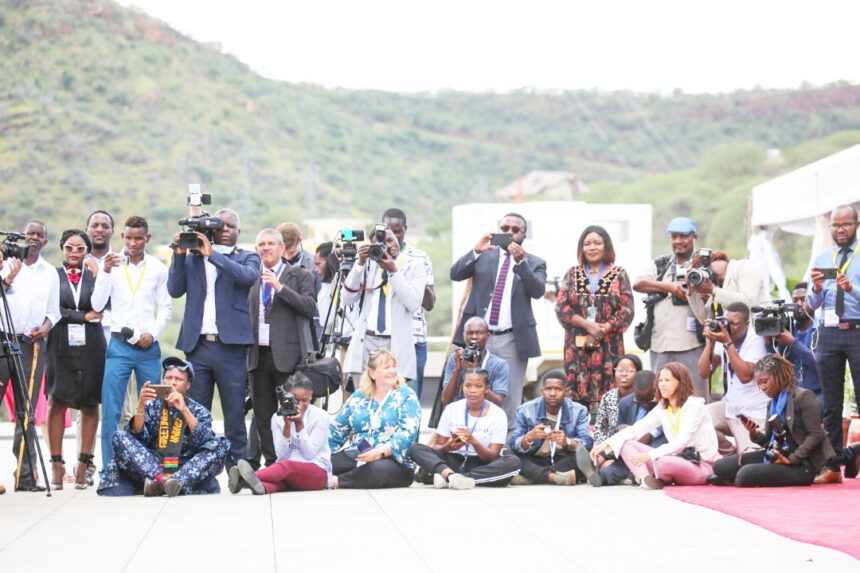ONGWEDIVA – Journalists covering Vice President Netumbo Nandi-Ndaitwah’s public appearances have complained that they are often at the receiving end of harsh treatment from her security detail.
Members of the Fourth Estate from various media houses have expressed their frustration over bodyguards pushing them away while they try to record videos or take pictures of the Swapo presidential candidate.
Journalists emphasised that this issue occurs only during events attended by the Vice President, where her bodyguards are particularly unfriendly.
Last week’s inauguration of Onawa police station in Oshakati by the Vice President particularly left a bad taste in the mouth’s of journalists.
“We no longer take photos or videos freely. They should respect our rights and our job,” a journalist lamented.
Another journalist said sometimes they are told by the bodyguards to move far away from the Vice President.
“Imagine, you are on duty taking photos of the Vice President, but the VIP police may come and block you. Sometimes they can even stand in front of our cameras,” another journalist expressed her frustration.
Reporters stressed that their duty is to disseminate news to the public.
“We want to take proper pictures and videos without any interruptions,” another scribe said.
The journalists spoke on condition of anonymity in fear of reprisal.
Approached for comment, Nandi-Ndaitwah said she will consult Namibian Police chief Joseph Shikongo to ensure that he addresses the issue with the police’s elite protection unit.
“Journalists should do their work without interruption. We are all doing our work,” she stressed.
Nandi-Ndaitwah added that she always maintains a good relationship with journalists.
She then wished all journalists the best of luck and strength, and to continue informing the public.
Approached for comment, Shikongo said journalists are meant to inform the public and therefore, their job should be valued.
The police chief said he is against the VIP police pushing away journalists.
“Journalists have a good relationship with police officers. They always assist the police in disseminating information,” he added.
He called on media houses to ensure that they provide media jackets to their staff for clear identification.
“It’s very important that journalists carry their media cards at all times because nowadays, anyone can be a fake journalist,” he urged.
The police chief asked police VIP protection staff and journalists to unify and respect one another, instead of pushing each other.
However, Shikongo said some journalists like standing at restricted points.
“Bodyguards are just doing their work accordingly. Their job is to ensure that the Vice President is safe,” he added.
Also speaking to this publication, media Ombudsman John Nakuta said journalists are not criminals and they should not be treated as such.
“Journalists are also expected to do their work according to the laid-out procedures and standards and not be overly obstructive in carrying out their work,” he added.
Nakuta called on the journalists’ union to take this matter up because it amounts to unfair treatment.
In addition, he said this treatment involves the safety of journalists and undue interference or prevention of journalists from doing their work.



